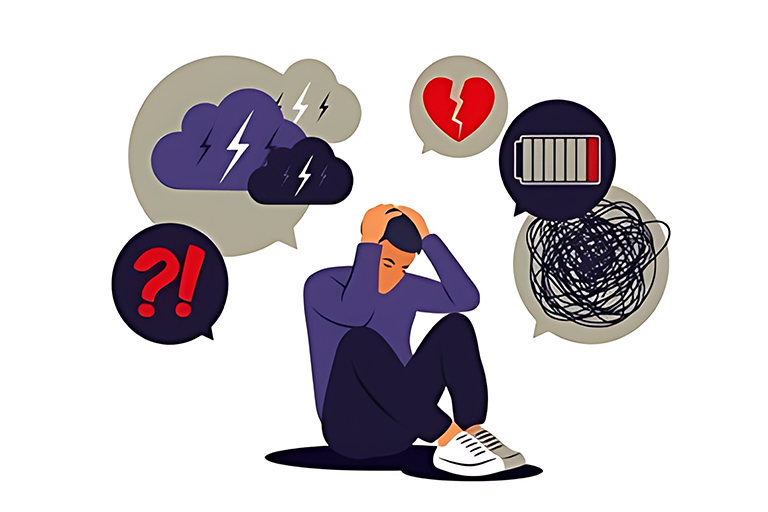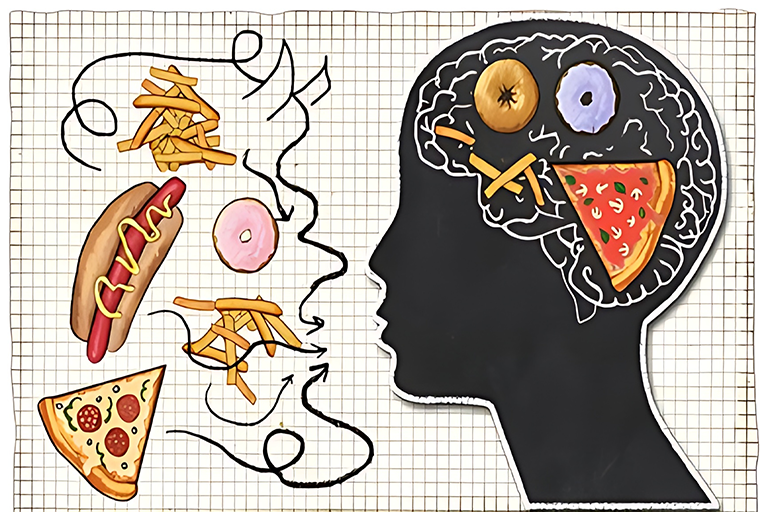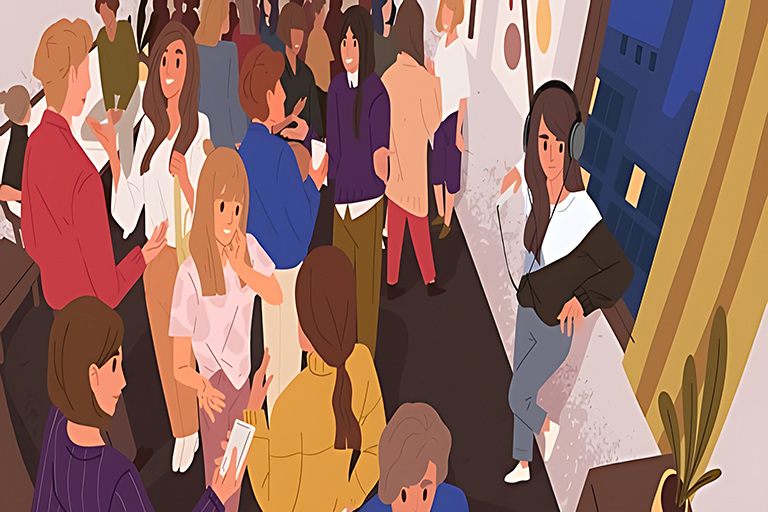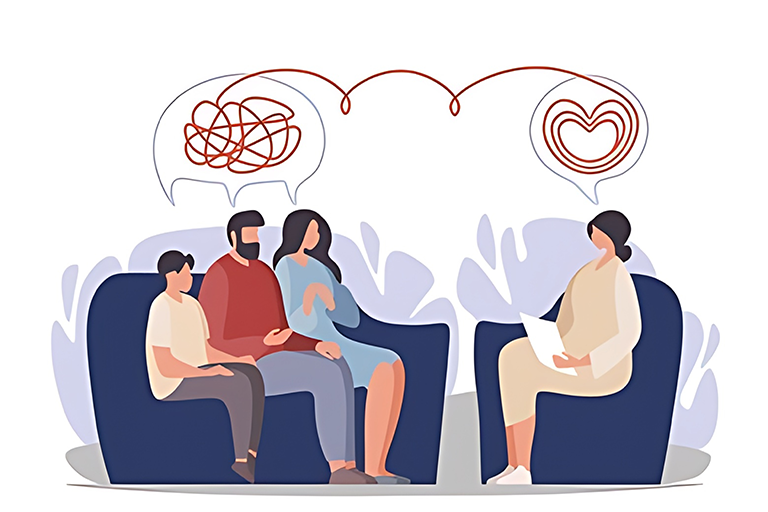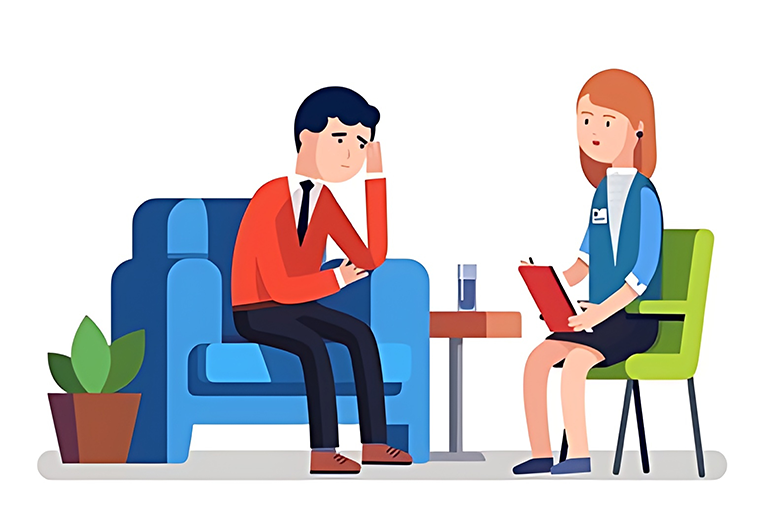Introduction: Exploring the Connection Between Mental Health, Depression and Anxiety
In the realm of mental health, depression and anxiety are two of the most prevalent and closely interwoven conditions. Both of these conditions can have a profound impact on an individual’s life, affecting their thoughts, emotions, and behaviors. While depression and anxiety are distinct, they often coexist and share common underlying factors. In this article, we delve into the complex connection between mental health, depression, and anxiety, shedding light on how they intersect and influence one another.
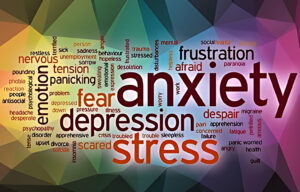
The Overlapping Landscape:
Depression and anxiety are distinct mental health disorders, each with its unique characteristics. Depression, often characterized by persistent sadness, loss of interest, and feelings of worthlessness, can sap an individual’s energy and enthusiasm for life. Anxiety, on the other hand, encompasses a range of disorders, including generalized anxiety disorder (GAD), social anxiety disorder, panic disorder, and specific phobias. Anxiety disorders are marked by excessive worry, fear, and apprehension. Physically, anxiety often manifests as symptoms like sweating, trembling, rapid heartbeat, and muscle tension.
While depression and anxiety are distinct, they share common threads in terms of emotional suffering and impaired daily functioning. These shared experiences form the basis of their connection.
However, the boundaries between these disorders are not always clear-cut. Many individuals with depression also experience symptoms of anxiety, and vice versa. This co-occurrence is known as comorbidity and poses significant challenges for diagnosis and treatment. Understanding this intricate overlap is crucial for providing comprehensive care to individuals facing these challenges.
Shared Underlying Factors:
While depression and anxiety have distinct symptom profiles, they share common underlying factors that contribute to their development and persistence. These include:
- Neurobiological Factors: Both depression and anxiety involve imbalances in brain chemicals (neurotransmitters) such as serotonin, dopamine, and norepinephrine. Disruptions in these neurotransmitter systems can contribute to mood and anxiety disorders.
- Genetics: Genetic predisposition plays a role in susceptibility to both depression and anxiety. Individuals with a family history of these disorders are at a higher risk of developing them.
- Stressful Life Events: Traumatic experiences, major life changes, or chronic stress can trigger or exacerbate both depression and anxiety. These events can lead to changes in brain function and structure.
- Cognitive Patterns: Negative thought patterns and cognitive biases are common in both conditions. Individuals with depression and anxiety often interpret situations in ways that reinforce their negative emotions.
- Environmental Factors: Environmental factors, such as a lack of social support, childhood adversity, or a dysfunctional family environment, can contribute to the development of both disorders.
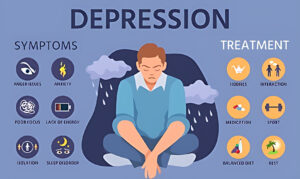
The Vicious Cycle
One of the complexities of the connection between depression and anxiety lies in the potential for a vicious cycle. For example:
Anxiety Leading to Depression: Chronic anxiety can wear individuals down physically and emotionally. Constant worry and fear can lead to sleep disturbances, fatigue, and irritability, all of which are classic symptoms of depression. The isolation that often accompanies anxiety can further intensify feelings of loneliness and sadness, eventually leading to full-blown depression.
Depression Fueling Anxiety: On the other hand, the low energy, lack of motivation, and feelings of hopelessness characteristic of depression can leave individuals ill-equipped to cope with the stresses and demands of daily life. This, in turn, can trigger or exacerbate symptoms of anxiety, as individuals may find themselves unable to manage stressors effectively.
Treatment and Management: Understanding the interconnected nature of depression and anxiety is crucial for effective treatment and management. Many therapeutic approaches address both conditions simultaneously. Cognitive-behavioral therapy (CBT), for example, can help individuals identify negative thought patterns and develop healthier coping strategies for both depression and anxiety symptoms.
Medication can also play a role, as certain antidepressants can be effective in treating both disorders. However, treatment plans should always be tailored to the individual’s unique needs and circumstances.
Conclusion:
Depression and anxiety are complex mental health conditions with intertwined threads that can influence each other’s course. Recognizing the shared underlying factors and the potential for co-occurrence is essential for a holistic understanding of these challenges. By unraveling the intricate connection between mental health, depression, and anxiety, we can pave the way for more effective interventions and a better quality of life for those who face these struggles.
Managing depression and anxiety is an ongoing journey that requires patience, self-compassion, and a combination of coping strategies. There’s no one-size-fits-all solution, as each individual’s experience with these conditions is unique. However, by incorporating a combination of professional help, lifestyle changes, and self-care practices, individuals can regain control of their lives and find hope on their journey toward improved mental health.
Remember that seeking help is a sign of strength, and you don’t have to face depression and anxiety alone. With the right support and resources, individuals can learn to navigate the complex landscape of mental health, fostering resilience and finding a path toward healing and recovery.
Learn more: Mental Health Awareness
& Know about Your Confidant
Shruti Dua, Mental Health Blogger, YOUR Confidant

